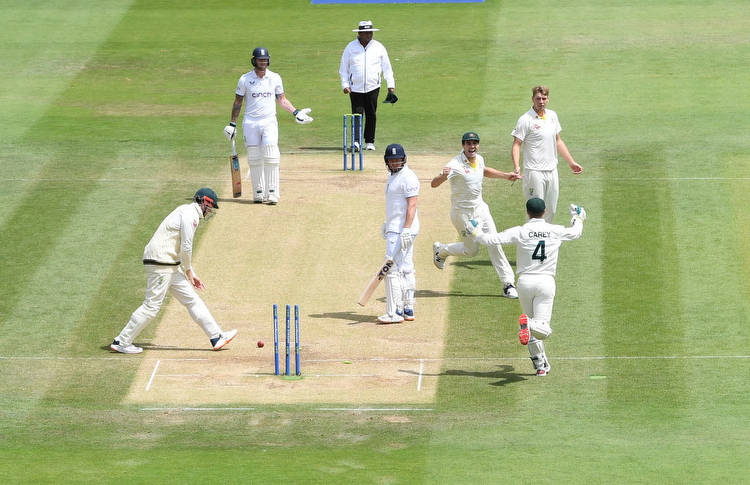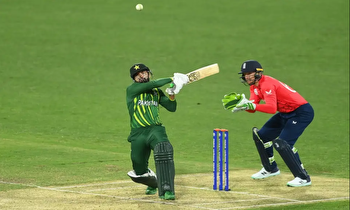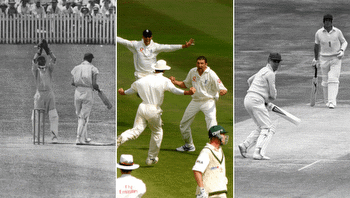Aussie cricketers have nothing to apologise for

The world of cricket suffers from an unjustified moral superiority complex. This explains the periodic howls of outrage when a player or team is caught acting in a manner summed up by the phrase ‘it’s not cricket’ — a catch-all sentiment that purports to speak of some higher purpose than just winning.
The latest example is the overblown reaction to the Australian cricket team’s controversial stumping of Jonny Bairstow when the England batsman appeared to believe the ball was not in play during the final day of the second Ashes test. Even Rishi Sunak couldn’t resist the temptation to wade in. The Prime Minister said Australia’s actions were not in the ‘spirit of cricket’ and that he agreed with Ben Stokes, the England captain, who said after the match that he would not have wanted to win the game in the manner Australia did.
Sir Geoffrey Boycott, another former England captain, demanded Australia issue ‘a full public apology’, before adding this warning to the Aussies: ‘If you want to win at all costs, cricket is not for you.’
Now I’m 64: my tips for a happy old age
This is an absurd statement from someone who has played the game at the highest level: it is exactly about winning at all costs. And what should the Australians apologise for? Winning the game and using every means within the rules to do so? The self-appointed cricket purists really need to put a sock in it. Their strictures come across as sour grapes. It is hard to square their bloviating with the harsh competitive reality of elite level sport where the stakes are so high. The rules of the game exist to ensure there is a level playing field and that everyone is clear about what is and isn’t permitted. There is no separate set of unspoken moral or ethical rules of fair play or gentlemanly conduct. To clobber the Australians for breaking the spirit of the game is balderdash.
The moral posturing only serves to highlight a wider self-serving amnesia about the history of cricket. In 1933, during a now infamous Ashes series, there was an almighty row between the two countries over the ‘bodyline’ tactics of the English bowlers, when they deliberately aimed at the Australian batsmen’s bodies. This cynical tactic was designed to combat the batting brilliance of Australia’s Don Bradman. There was much talk back then about this breaking the rules of ‘gentlemanly conduct’ but the row said less about cricketing morals and more about how both nations viewed each other at the time.
In fact, for such an apparently courteous game where fair play is deemed to matter above all else, cricket has had more than its fair share of scandals and spats. One notorious incident took place in the match between England and Pakistan in Faisalabad in 1987. The umpire Shakoor Rana accused the England captain Mike Gatting of making changes to the field as a bowler ran in to bowl, which is against the rules. This accusation incensed Gatting. The image of the England captain and umpire arguing and pointing fingers at each other made headlines worldwide.
More recent scandals have involved match-fixing, ball-tampering and spot-betting. In 2010, three Pakistan cricketers — the captain Salman Butt, and his two best bowlers Mohammad Amir and Mohammad Asif — were found to have conspired to deliberately bowl no-balls during a Test against England at Lord’s. They all received lengthy bans. All this is as far removed as you can get from the quaint notion of a game ‘played the right way’ and in which respect matters more than winning.
The other thing cricket’s moralising purists overlook is how much the mythology of sport is dominated by such controversies. People will be speaking about the rights and wrongs of the Bairstow stumping long after the Ashes series itself has been quietly forgotten. Like it or not, this forms a big part of the attraction of the game for millions of fans and non-fans worldwide.
The only lesson to draw from this affair is that it really is time to let go of the outdated idea that cricket has some deep unwritten sporting behaviour code that imbues it with a greater moral standing. The game’s only governing ethos is that you do whatever it takes to win within the rules of the game. The Australians did just that, serving to prove the point that cricket is no better or worse than any other sport. Cricket lovers need to stop pretending otherwise.



































